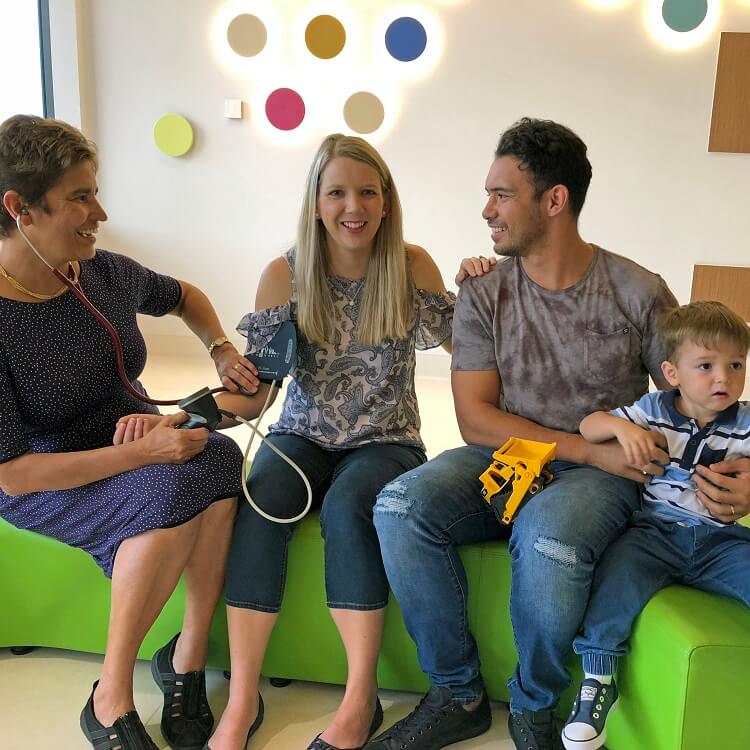Search

News & Events
ORIGINS reaches key milestoneORIGINS, a collaboration between The Kids and the Joondalup Health Campus, has achieved a major milestone – recruiting its 1000th family.
Research
Data resource profile: the ORIGINS project databank: a collaborative data resource for investigating the developmental origins of health and diseaseThe ORIGINS Project (“ORIGINS”) is a longitudinal, population-level birth cohort with data and biosample collections that aim to facilitate research to reduce non-communicable diseases and encourage ‘a healthy start to life’. ORIGINS has gathered millions of datapoints and over 400,000 biosamples over 15 timepoints, antenatally through to five years of age, from mothers, non-birthing partners and the child, across four health and wellness domains.
Research
Measuring early childhood development in multiple contexts: the internal factor structure and reliability of the early Human Capability Index in seven countriesFindings support the aims of the early Human Capability Index in being adaptable and applicable for use within a range of low and middle income countries
Research
Lipopolysaccharide-induced interferon response networks at birth are predictive of severe viral lower respiratory infections in the first year of lifeAppropriate innate immune function is essential to limit pathogenesis and severity of severe lower respiratory infections (sLRI) during infancy, a leading cause of hospitalization and risk factor for subsequent asthma in this age group.
Research
Children's exposure to outdoor food advertising near primary and secondary schools in AustraliaPrevious research has highlighted children's frequent exposure to advertisements of unhealthy food and beverages on television. However, the food industry is increasingly utilising non-broadcast channels such as outdoor advertising (eg billboards, bus shelters, shop fronts) for product marketing.
Research
Primary school teacher outcomes from online professional development for physical literacy: A randomised controlled trialPrimary (or elementary) school teachers are often relied upon to provide children with opportunities for physical literacy development; however, many of these teachers feel they lack the skills to effectively promote or ‘teach’ physical literacy.
Research
Inequalities in child development at school entry: A repeated cross-sectional analysis of the Australian Early Development Census 2009-2018Australia is the only developed country to consistently undertake a developmental census of its children nationwide. The repeated collection of the Australian Early Development Census (AEDC) has provided an unprecedented opportunity to examine the prevalence of developmental vulnerability across Australia's states and territories, the socio-economic distribution of developmental vulnerability across jurisdictions, and how these distributions might have changed over time.
Research
The Human Phenotype Ontology in 2021The Human Phenotype Ontology was launched in 2008 to provide a comprehensive logical standard to describe and computationally analyze phenotypic abnormalities found in human disease. The HPO is now a worldwide standard for phenotype exchange. The HPO has grown steadily since its inception due to considerable contributions from clinical experts and researchers from a diverse range of disciplines. Here, we present recent major extensions of the HPO for neurology, nephrology, immunology, pulmonology, newborn screening, and other areas.
Research
The Development and Feasibility of a Manualised Therapeutic Playgroup for Children with Developmental DelayPlaygroups are widely used throughout the Australian community yet understanding of their efficacy is hindered by inconsistent playgroup definitions and practice principles. This study aimed to develop, implement and evaluate the feasibility of a manualised therapeutic playgroup for children with developmental delay and their families using a three step process.
Research
The cost of respiratory hospitalizations in children with cerebral palsyTo establish the burden of respiratory illness in cerebral palsy (CP) on the Western Australian health care system by quantifying the costs of respiratory hospitalizations in children with CP, compared with non-respiratory hospitalizations.
